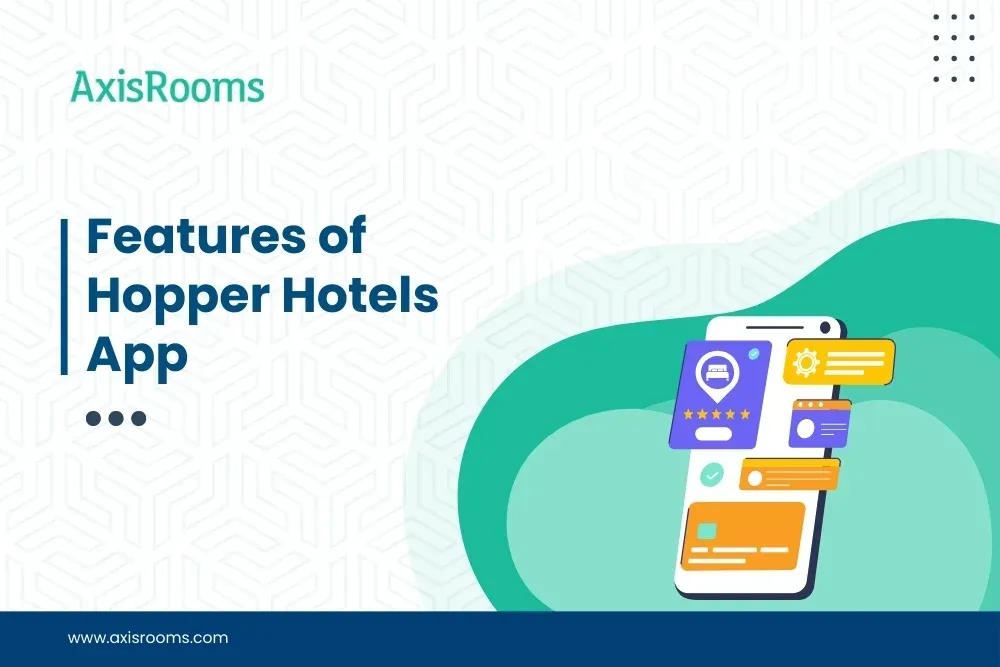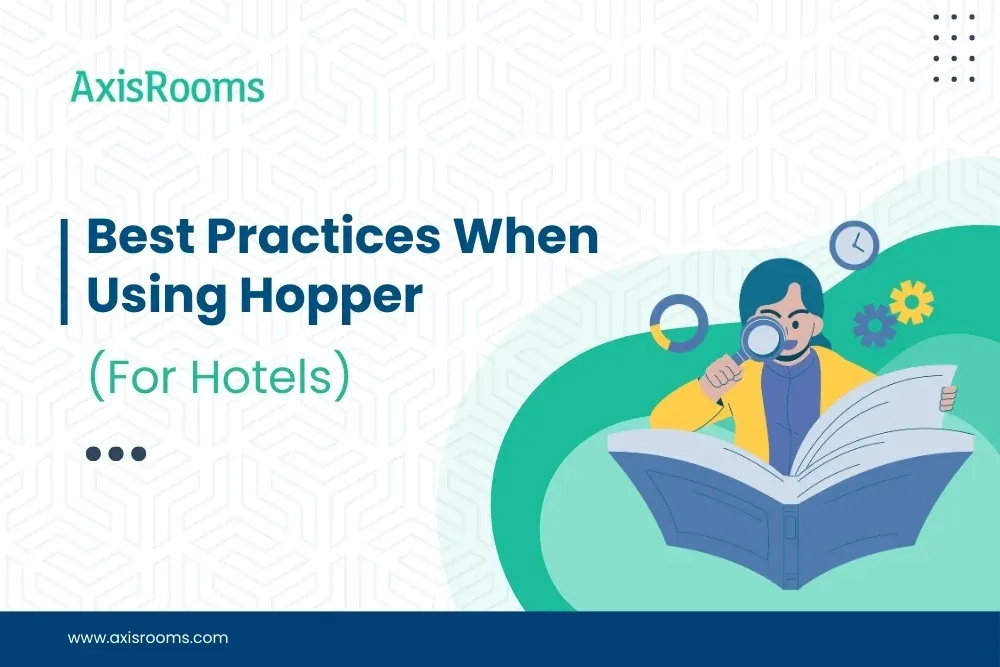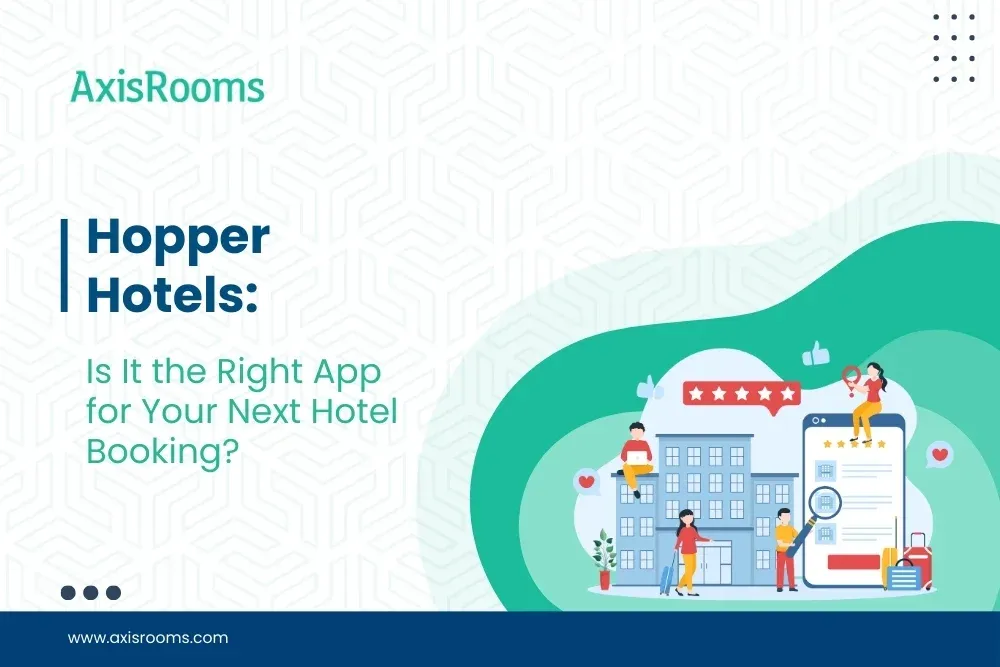What is Hopper and How Does It Work for Hotels?
Hopper is a mobile-first travel booking platform that uses AI to predict hotel prices and recommend the best time to book. It was initially built for flight bookings but has quickly grown into a one-stop app for hotels, cars, and more.
For hoteliers, Hopper presents a new channel to target last-minute and budget-conscious guests, especially those who prefer mobile apps over traditional OTAs. Its features like price prediction, price freeze, and real-time alerts are designed to appeal to travelers seeking convenience and savings.
According to recent statistics, Hopper generated $700 million in revenue in 2023, a 40% increase from the previous year, with total bookings rising from $4.5 billion to $5.9 billion. This rapid growth demonstrates the platform's increasing popularity among travelers.
By integrating with distribution systems, Hopper pulls live rates and inventory from hotel partners. This means hotels can appear on Hopper with minimal manual effort, provided they use a reliable channel manager.
Is Hopper Legit? A Look at Trust and Security
Hopper is a well-funded company backed by global investors, and it has built strong partnerships with platforms like SiteMinder. This shows it’s not just another travel app but part of a connected distribution network for modern-day bookings.
Hoteliers are often concerned about overbookings or rate discrepancies on new platforms. Hopper addresses this through API-based connections with channel managers that ensure real-time updates of rates and inventory.
Where AxisRooms Fits in:
This kind of integration helps hoteliers maintain control while expanding reach to mobile-first users via apps like Hopper. It also contributes to a more refined hotel revenue strategy by allowing data-driven decisions across multiple platforms.
Features of Hopper Hotels App

Hopper’s app is packed with traveler-centric features, many of which impact hotel bookings. These include personalized hotel suggestions based on user preferences, instant price drop alerts, and an option to “freeze” a price for a small fee.
For hotels, this means that guests may hold a price and return to confirm bookings later. While this adds flexibility for guests, it also introduces the importance of real-time inventory sync to avoid double-bookings.
The app’s Carrot Cash rewards system also drives repeat bookings within Hopper’s ecosystem, which hoteliers should consider when measuring guest loyalty through external channels.
By ensuring rate parity and visibility through tools like AxisRooms, hoteliers can take advantage of Hopper’s mobile user base without compromising direct sales strategy.
Real Reviews for Hopper: What Are Users Saying?
Travelers appreciate Hopper for offering deeper discounts, a fast mobile interface, and helpful price predictions. Many say it’s more convenient than traditional OTAs when booking on the go.
The 2024 Travel Outlook from Hopper reveals that 83% of Hopper users plan to take a vacation at least once in 2024, with 65% of these travelers planning to book at least one hotel stay. This represents a significant opportunity for hoteliers to capture these bookings.
However, several users report issues with cancellations and support delays. These often stem from third-party supplier chains, where the guest books via Hopper but the hotel may not be directly aware of policy expectations.
For hoteliers, it’s important to clearly define room policies, cancellation terms, and rate restrictions in the PMS integrations or channel manager to avoid miscommunication. Using a tool like AxisRooms ensures that all policies are pushed in real time to Hopper and other OTAs, preventing guest confusion at check-in.
Pros and Cons of Booking with Hopper Hotels
Pros for Guests:
- Exclusive rates and mobile-only discounts
- Predictive price tools that help travelers save
- Easy user interface and loyalty rewards
Considerations for Hoteliers:
- Guest expectations are shaped by app-based offers and reward programs
- Support issues may affect guest satisfaction if the booking is handled by third parties
- Since Hopper is mobile-first, guests may rely solely on app information rather than direct contact.
AxisRooms Advantage:
Using AxisRooms, hotels can automate the distribution of room details, policies, and availability, which helps avoid miscommunication and supports a smoother guest experience—even on third-party platforms.
Best Practices When Using Hopper (For Hotels)

To optimize your hotel’s presence on Hopper, consider these best practices:
- Maintain real-time sync of your availability and rates through a certified channel manager like AxisRooms to avoid overbooking.
- Ensure policies are accurate and clearly communicated, especially around cancellations and taxes.
- Track mobile bookings separately to understand the performance of Hopper as a distribution channel.
- Use Hopper data to identify last-minute booking trends and adjust pricing dynamically for mobile users.
When managed correctly, Hopper can be a valuable tool to capture younger, price-sensitive travelers who prefer spontaneous trips and short stays.
Conclusion: Should Hoteliers Work with Hopper?
Hopper is ideal for reaching a mobile-first guest segment that values flexibility, deals, and tech-enabled booking journeys. For independent hotels and chains looking to increase last-minute bookings, it can be a helpful partner—as long as it’s integrated properly into your tech stack.
AxisRooms helps bridge that gap.
With direct integrations to platforms like Hopper, AxisRooms gives hoteliers full control over how rates, availability, and restrictions are pushed in real time. This reduces operational burden, maintains policy accuracy, and improves guest satisfaction—no matter where the booking comes from.
For hotels aiming to grow bookings while staying efficient, Hopper plus AxisRooms can be a powerful combination.


